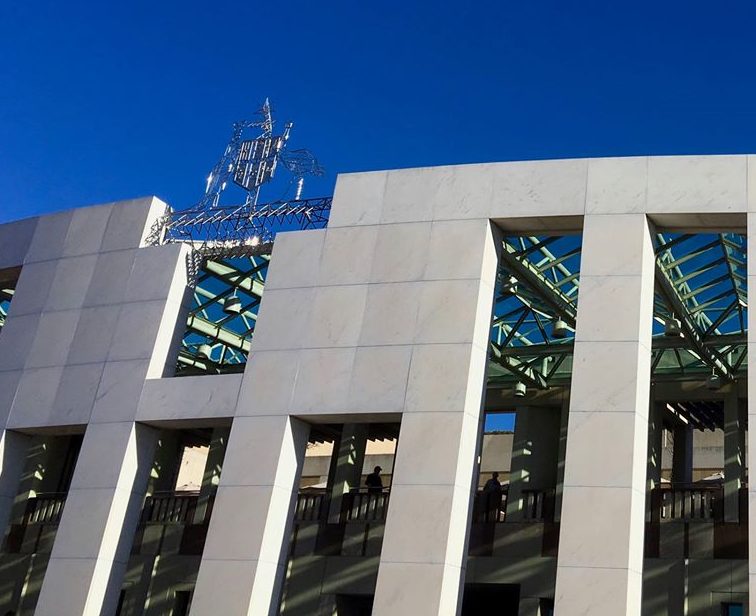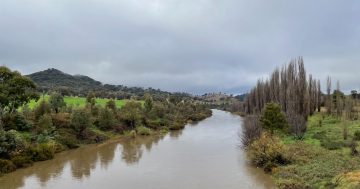
There are too many environment bureaucrats in Canberra, says the Institute of Public Affairs. Photo: David Murtagh.
The Institute of Public Affairs has released research that it says reveals a massive surge in bureaucracy and regulation over the environment since Labor won government.
The rightwing think tank said its study shows a rapid growth in bureaucrats dedicated to creating and enforcing regulation on Australian workers and businesses and that those numbers are about to hit the 100,000 mark.
“The increase of environmental bureaucrats in Canberra, by more than half, shows how the Federal Government is determined to curtail growth in Australia’s critical resources sector, no doubt to placate inner-city demands,” IPA research fellow Lachlan Clark said.
“Australia’s resources sector and primary industries are the cornerstones of our national wealth. It is these industries that fund our schools, roads and hospitals, but are always the first to be targeted by environmental activists and the political class.”
The report highlights an analysis of spending committed to in the Federal Budget. It shows that by the end of this financial year, the total number of staff employed by the Federal Government in regulatory roles will increase by 9 per cent, from 90,620 staff to 98,814 staff.
But environmentalists say the IPA’s report only proves the failure of markets and privatisation in relation to the environment.
And the government is making no apologies for having a “strong cop on the beat”.
The IPA says the growth is driven by the Climate Change, Energy, the Environment and Water portfolio, where total staff will increase by 51 per cent, which it says, in percentage terms, is three times more than any other portfolio will increase over the same period.
According to the research, four of the five regulatory government agencies and departments with the largest increase in staffing levels this year are involved with environmental regulation – the Climate Change Authority; the Department of Climate Change, Energy, the Environment, and Water; the Murray Darling Basin Authority; and the National Offshore Petroleum Safety and Environmental Management Authority.
IPA also claims government spending on staff within the Climate Change, Energy, the Environment and Water portfolio will increase by 32 per cent, from $488 million to $645 million.
This, it says, compares to increases in spending on staff across the Federal Government of 7 per cent, from $12.26 billion to $13.12 billion.
“With productivity collapsing, rather than expanding the already huge regulatory burden on Australia’s most productive industries, the federal government should be cutting red tape to generate investment, create jobs and unleash prosperity,” Mr Clark said.
“It is concerning at a time when Australia desperately needs productivity growth that the Federal Government has outsourced vital economic policy to inner-city elites and the political class.”
Leftwing think tank the Australia Institute said rather than analysing the numbers, it agreed with IPA about the flaws of over-regulation – just not in the way IPA would like to be agreed with.
“The IPA’s report has raised a very important point about the failure of markets and privatisation in Australia, particularly in relation to climate and environment,” the Australia Institute’s director of climate and energy program Polly Hemming told Region.
“Green finance frameworks and environmental markets require huge amounts of expensive and inefficient government infrastructure, including legislation, administration and auditing.
“Then, when these markets fail, further government intervention is required. Just like we have seen with aged care, disability services, education, transport, health, energy and, of course, climate – the biggest market failure of all.
“This is the irony of cutting red tape: the costly regulatory and bureaucratic burden it creates.”
When asked during a media interview if the Federal Government was creating more layers of bureaucracy and unnecessary red tape around environmental protections, Environment Minister Tanya Plibersek disagreed.
She was specifically asked about the Federal Government’s pledge to reform environmental law and establish a national environment protection agency, even though the states and territories have their own.
“It’s absolutely vital that we have a strong cop on the beat at a national level,” Ms Plibersek said.
“And I can tell you, one of the early tasks I set my department was to go and have a look at the environmental offsets that have been granted for previous projects to see whether those conditions that had been placed on developments had been properly adhered to.
“The message isn’t great on that and, in fact, making sure that we’ve got a strong environmental cop on the beat is a really very important element of our law reform.”





















